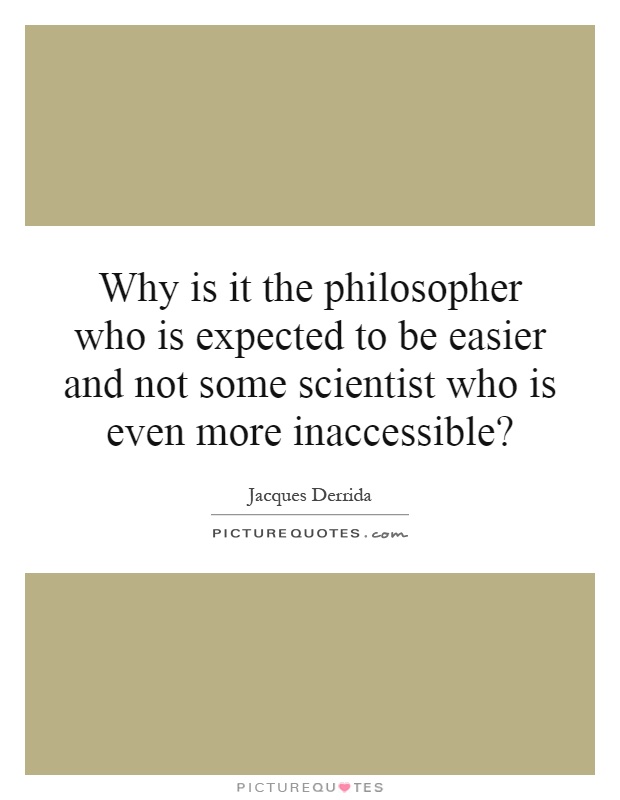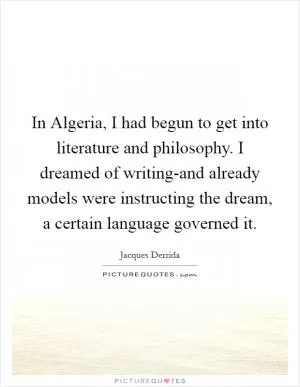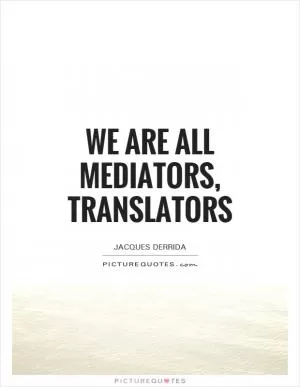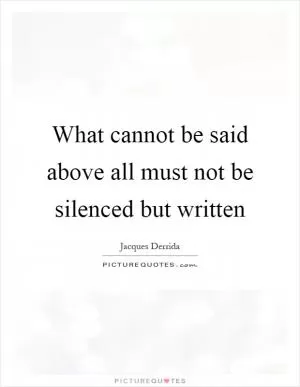Why is it the philosopher who is expected to be easier and not some scientist who is even more inaccessible?

Why is it the philosopher who is expected to be easier and not some scientist who is even more inaccessible?
Jacques Derrida, a prominent French philosopher known for his deconstructionist approach to language and meaning, often grappled with the question of why it is the philosopher who is expected to be more accessible than a scientist. In his work, Derrida sought to challenge traditional notions of knowledge and understanding, arguing that language and meaning are inherently unstable and subject to interpretation.One reason why the philosopher is often expected to be more accessible than a scientist is that philosophy deals with abstract concepts and ideas that are more relatable to the average person. While scientists may work with complex equations and technical jargon, philosophers like Derrida explore questions about the nature of reality, existence, and human experience that have a more universal appeal. By engaging with these fundamental questions, philosophers are able to connect with a wider audience and provoke thought and reflection on the nature of reality and knowledge.
Additionally, philosophers like Derrida often use language in a more creative and poetic way than scientists, making their ideas more engaging and thought-provoking. Derrida's deconstructionist approach to language, for example, challenges traditional notions of meaning and interpretation, inviting readers to reconsider their assumptions about language and communication. By playing with language and pushing the boundaries of conventional thought, philosophers like Derrida are able to make their ideas more accessible and engaging to a wider audience.
Furthermore, philosophers are often seen as more accessible than scientists because they are willing to engage with questions that do not have easy answers. While scientists may seek to uncover objective truths through empirical research and experimentation, philosophers like Derrida are more interested in exploring the complexities and ambiguities of human experience. By embracing uncertainty and ambiguity, philosophers are able to connect with readers on a more emotional and intellectual level, inviting them to think critically about the nature of reality and knowledge.












 Friendship Quotes
Friendship Quotes Love Quotes
Love Quotes Life Quotes
Life Quotes Funny Quotes
Funny Quotes Motivational Quotes
Motivational Quotes Inspirational Quotes
Inspirational Quotes